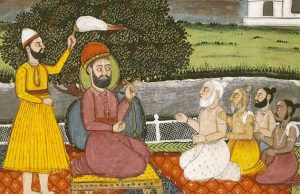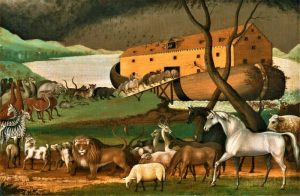Sikhism
Sikhism is a religion that originated in India and was developed in the context of the conflict between the doctrines of Hinduism and Islam. Followers of Sikhism are called Sikhs. The term Sikh has its origin in the Sanskrit śiya, which means "disciple, he who learns" or śika which has as its definition the word "instruction". It is the ninth largest religion in the world and has approximately 27 million faithful followers. Most Sikhs are located in the Punjab region of India and Pakistan.

- Type of religion: Monotheistic
- Sacred books: Guru Granth Sahib
- Origin: Timurid Empire
- Deities: God (Waheguru)
What is Sikhism?
Sikhism is a type of religion that had its origins in India and developed between the doctrines and teachings of Hinduism and Islam. It is a doctrine that believes in one God and in the teachings of his gurus which are kept in his sacred book. It was a religion that was born out of the dissatisfaction of many.
The basic doctrine governing Sikhism consists of belief in one God and the teachings of the ten gurus of Sikhism, which are kept in the sacred book of Sikhs, the Guru-grant-sajib. A monotheistic religion that was born as a synthesis of the Hindu movement and Islamic Sufism which denies the caste system, the priesthood, eliminates sacrifice, and gives it a purely pacifist character, although it has become a weapon of war on numerous occasions.
History of Sikhism
Sikhism is a religion of its own and is native from India, where there are now many places where they practice this religion, is a religion where people who want to participate in it can do it without any problem because within their doctrines they do not discriminate against any person, all people help each other and help others who are not of the same religion. The Sikh religion developed in the conflict between Hinduism and Islam during the sixteenth and seventeenth centuries.
Founder
The founder of Sikhism was Guru Nanak (1469-1538), was born into a family that followed the Hindu religion located in the northwest of ancient India, this area today is within the borders of Pakistan. His father, Mehta Kalu, was a patwari, a term that referred to the accountants of income from land belonging to the government. His mother was Mata Tripta. Since childhood, Guru Nanak liked and captivated religion and for this reason he left his home. He walked all over India in the manner of holy Hindu pilgrims. After several trips, he preached his word to Hindus and Muslims teaching them about the union that should exist between human beings. To him, the world seemed real, but the only reality was God.
Characteristics of Sikhism
- The Sikh religion has no priests, what they had was a kind of guardians who were responsible for caring for and protecting the sacred book.
- For them, all people were welcome, and food was provided at no cost.
- Their teachings were based on the teachings of the ten Sikh Gurus.
- For them, the main obstacles to salvation were conflicts in society and the pursuit of worldly goals.
- Salvation could only be achieved through discipline and devotion to God.
Belief
All his beliefs were based on the ten Gurus and the holy book. These beliefs were not based on how to find the way to heaven or hell, but on the spiritual union one could have with God, which ultimately translated into salvation. For them there were obstacles that prevented them from reaching total salvation and evils that were important to avoid, self-centeredness, lust, rage, anger and greed. When people fell into these evils, then separation from God was obtained, which was very difficult to reverse unless it was for intense and unceasing devotion to God. They did not believe in pilgrimages or rites, and for them devotion had to be carried out through the heart, spirit, and soul of the person.
God of Sikhism
For Sikhism there is God, but He is One God: He is the Eternal Truth, The Creator, the Omnipotent Divine Spirit, someone who never has or feels fear, who has no hatred and in his heart there is no possibility for enmity. The Immortal Entity. Unborn, self-sufficient, made real by his own Grace.
Sacred book of Sikhism
The sacred book was elevated to the rank of living Guru by the last Guru Sikh, in the 17th century, who before dying indicated to his followers that they should treat him as their next Guru. For the Sikhs, the Guru Granth Sahib is not simply a book, it is a real Guru who serves as a guide to the people who choose to follow them. The Sikhs consider the sacred book as their eternal Guru, since it contains the precepts of the 10 Gurus of Sikhism. This book is considered as an authority, its highest spiritual expression. It is treated with the utmost reverence and respect and is a source of inspiration. He is treated like royalty, he is cared for, he is covered if it is cold, heating is turned on to keep him warm or air conditioning if it is hot, he is considered a living being and a Guru.
How to cite this article?
Briceño V., Gabriela. (2019). Sikhism. Recovered on 23 February, 2024, de Euston96: https://www.euston96.com/en/sikhism/









